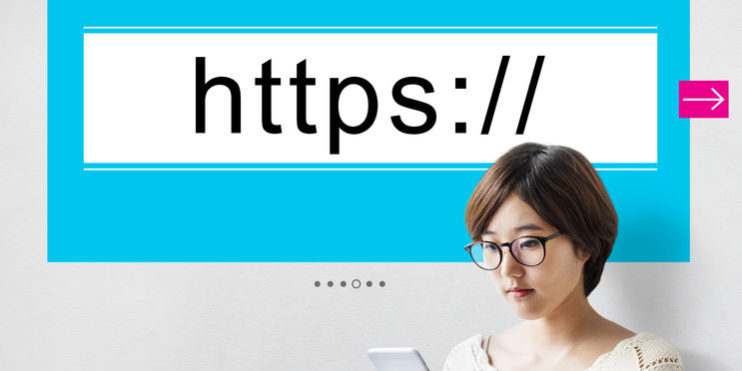First what is HTTPS? HTTPS, or “secure http”, was developed to allow authorization and secured transactions. Exchanging confidential information needs to be secured in order to prevent unauthorized access, and https makes this happen. The ‘S’ at the end of HTTPS stands for ‘Secure’. It means all communications between your browser and the website are encrypted. When an SSL certificate is used, the information becomes unreadable to everyone except for the server you are sending the information to.

Why do you need an SSL? Earlier this year, and now already in place, Google adds a “Not Secure” alert message to any website without an SSL certificate or a website with HTTPS in it’s URL.
“Any type of data that users type into websites should not be accessible to others on the network, so starting in version 62 Chrome will show the ‘Not secure’ warning when users type data into HTTP sites,” said Emily Schechter, a Chrome Security Team product manager.
So any website that uses any contact form for users to input information, even non-confidential or non-secure information, will have an alert show up that the site is ‘Not Secure’. If users see that, they may hesitate to finish filling out the form or hitting submit. So if you’re using your site to convert visitors into leads or gather information from your visitors, you will need an SSL certificate on your website as of this past October 2017.
Is it hard to convert to SSL? If you’re using a WordPress or other content management system, the process has become somewhat streamlined with adding the SSL and making all the necessary changes to update your links, including:
 automatically detects your settings and configures your website to run over https
automatically detects your settings and configures your website to run over https- redirecting http to https,
- update your .htaccess file,
- change your homepage and site URL to https, replacing all http:// urls to https:// unless the links point outside your domain
- Find all links on the website that are not generated by a CMS, so updating all your hard links
- Setup 301 redirects from HTTP to HTTPS
If you had to do this manually, it would take hours but usually there are CMS plugins that can help speed up and automate the process. There is also the work of updating all of your external links from http to https, for example on all your social media platforms profiles, third-party directory listings, Google My Business listing, backlinks from trade and organizational websites, email marketing and updating your Google Analytics.
Benefits of an HTTPS Website
 SEO Boost with an SSL: There may be some down time on your website from a few minutes to a few hours, so choose a time that you know that you’ll have the least amount of visitors, usually nights or weekends. Initially, you may see a temporary drop in your ranking on the SERPs (search engine results page) but in time once your site is reindexed you may even see a boost in ranking as HTTPS websites rank a bit higher. In 2015, Google officially announced that switching your website over to HTTPS will give you a minor ranking boost.
SEO Boost with an SSL: There may be some down time on your website from a few minutes to a few hours, so choose a time that you know that you’ll have the least amount of visitors, usually nights or weekends. Initially, you may see a temporary drop in your ranking on the SERPs (search engine results page) but in time once your site is reindexed you may even see a boost in ranking as HTTPS websites rank a bit higher. In 2015, Google officially announced that switching your website over to HTTPS will give you a minor ranking boost.
Increased Leads and Conversions: With an SSL certified website, you now have added a layer or protection to your website which will encourage more interactions and lead conversions from your website. If you were filling a form out on a website and a warning popped up in the browser with bold text “NOT SECURE” … would you finish and submit your personal information? Not likely. If you want others to take time to contact you or fill out your online forms, provide them a safe environment to do so to ensure their content is protected and not stolen and shared among nefarious parties.
Increased Trust & Credibility: It’s hard enough to generate trust and credibility in your internet marketing strategy amidst so many scams, spams, and schemes on the internet. For your brand to stand out from among the rest, it’s imperative you implement any and all security protocols, conduct your online business in a legal and sound manner, and openly and honestly communicate your terms, conditions, limitations and disclaimers. In providing a safe and secure place to get to know your brand online with an SSL certificate is the first step in that process.
Need help in converting your site to HTTPS? Call Startup Production Monday through Thursday for more details at (859) 624-2981 or contact us.







1 Comment